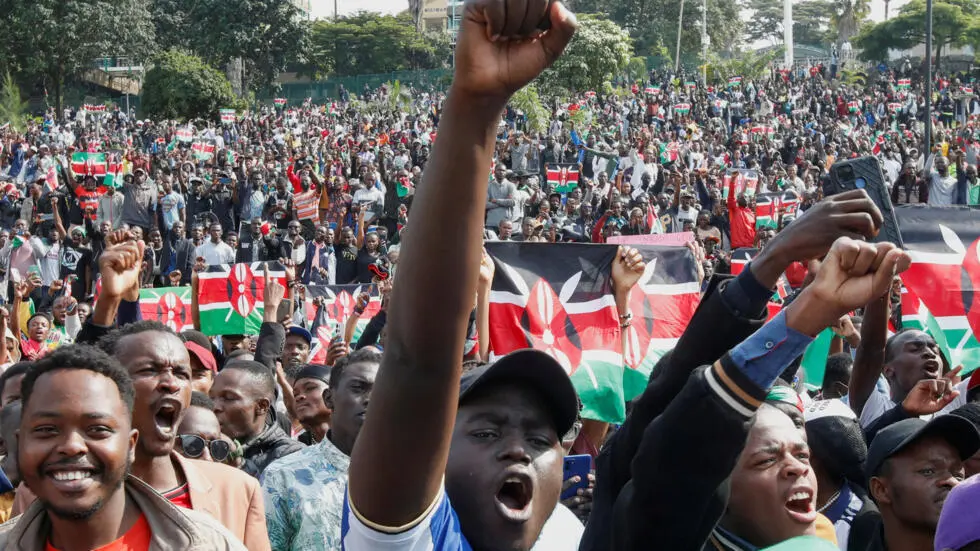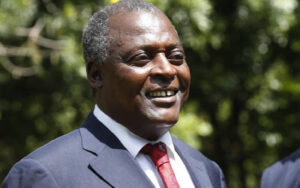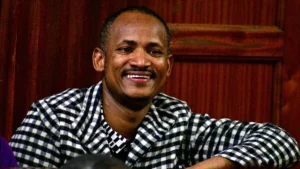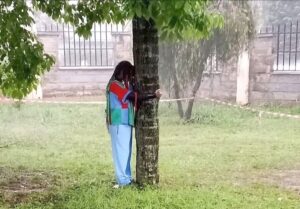The Director of Public Prosecutions (DPP), Renson Ingonga, has approved charges against five individuals linked to the planning, mobilizing, and financing of the youth-led anti-government protests that took place in June 2024.
In a letter addressed to the Director of the Directorate of Criminal Investigations (DCI), Amin Mohamed, the DPP confirmed that there is sufficient evidence to charge the suspects with conspiracy to commit a felony, in accordance with Section 393 of the Penal Code.
Among those implicated are key allies of Deputy President Rigathi Gachagua, including Members of Parliament Benjamin Gathiru Mwangi (Embakasi Central) and James Mwangi Gakuya (Embakasi North). Other individuals named are former MP George Theuri, Ngunjiri Wambugu, and Pius G. Munene.
The DPP’s decision follows recommendations from the DCI, who concluded that the five should face legal action for their roles in orchestrating the protests, which rocked several major cities across Kenya in June. The protests, driven by widespread dissatisfaction with the government over economic conditions, drew significant attention both locally and internationally.
The five will be charged with conspiracy to commit a felony, a violation under Section 393 of the Penal Code. Additionally, Benjamin Mwangi will face further charges of inciting others to commit an offense, under Section 391 of the Penal Code, as well as money laundering offenses under the Proceeds of Crime and Anti-Money Laundering Act.
In a separate directive, the DPP has instructed the DCI to open a new investigation focusing on money laundering and financial crimes, with the suspects potentially facing additional charges related to these allegations.
The June 2024 anti-government protests were some of the largest Kenya has seen in recent years, with thousands of youth taking to the streets in cities such as Nairobi, Kisumu, Mombasa, and Nakuru.
Protesters expressed outrage over the rising cost of living, government corruption, and the controversial Finance Act, which introduced additional taxes on essential goods and services.
According to estimates from human rights organizations, over 300,000 demonstrators participated in the protests nationwide, which lasted for several days. The demonstrations escalated into clashes with police in several regions, leading to the arrest of over 1,200 individuals.
The Kenya National Commission on Human Rights (KNCHR) reported that at least 15 people were killed during the protests, and hundreds more sustained injuries due to police action.
In addition to the loss of life, the protests caused significant disruptions to daily life and the economy, with businesses reporting losses of up to KES 500 million in property damage and lost productivity. Many of the protesters were youth, reflecting growing disillusionment among Kenya’s younger population, who have been hit hard by rising unemployment rates and inflation. Youth unemployment stood at approximately 38% in 2023, one of the highest in East Africa.
The arrests and pending charges against individuals aligned with Deputy President Rigathi Gachagua have added another layer of complexity to the country’s already tense political landscape. Gachagua, a key ally of President William Ruto, has publicly denounced the charges, accusing the government of targeting his allies for political reasons.
However, analysts believe that the protests in June reflect a deeper societal crisis in Kenya, where frustration with the government’s handling of the economy is reaching a boiling point.
The Finance Act, in particular, has been a major point of contention, with critics arguing that it unfairly burdens ordinary citizens while failing to address systemic corruption and inefficiency within government institutions.
The five suspects are expected to appear in court soon to face the charges brought against them. If found guilty, they could face severe penalties, including lengthy prison terms. Meanwhile, investigations into financial crimes, including money laundering, are ongoing, and more charges could be added in the coming weeks.
As the legal process unfolds, the government will likely face increasing pressure from the public, particularly as inflation continues to rise, with the Kenya National Bureau of Statistics (KNBS) reporting an inflation rate of 9.3% in August 2024.
Many Kenyans are demanding accountability and solutions to the economic challenges they face, while the political elite remains embroiled in controversy and scandal.
Read Also: Torture and Humiliation, UDA’s Infighting
















